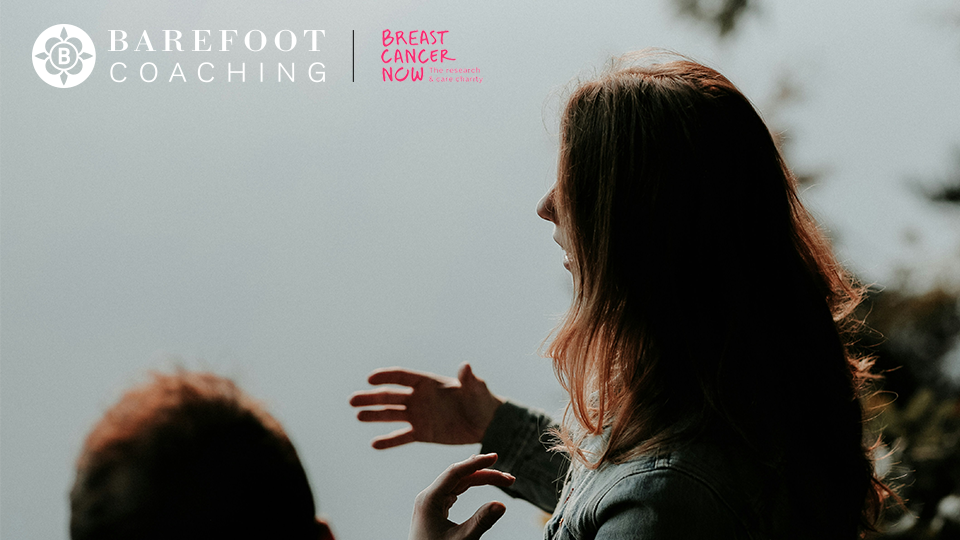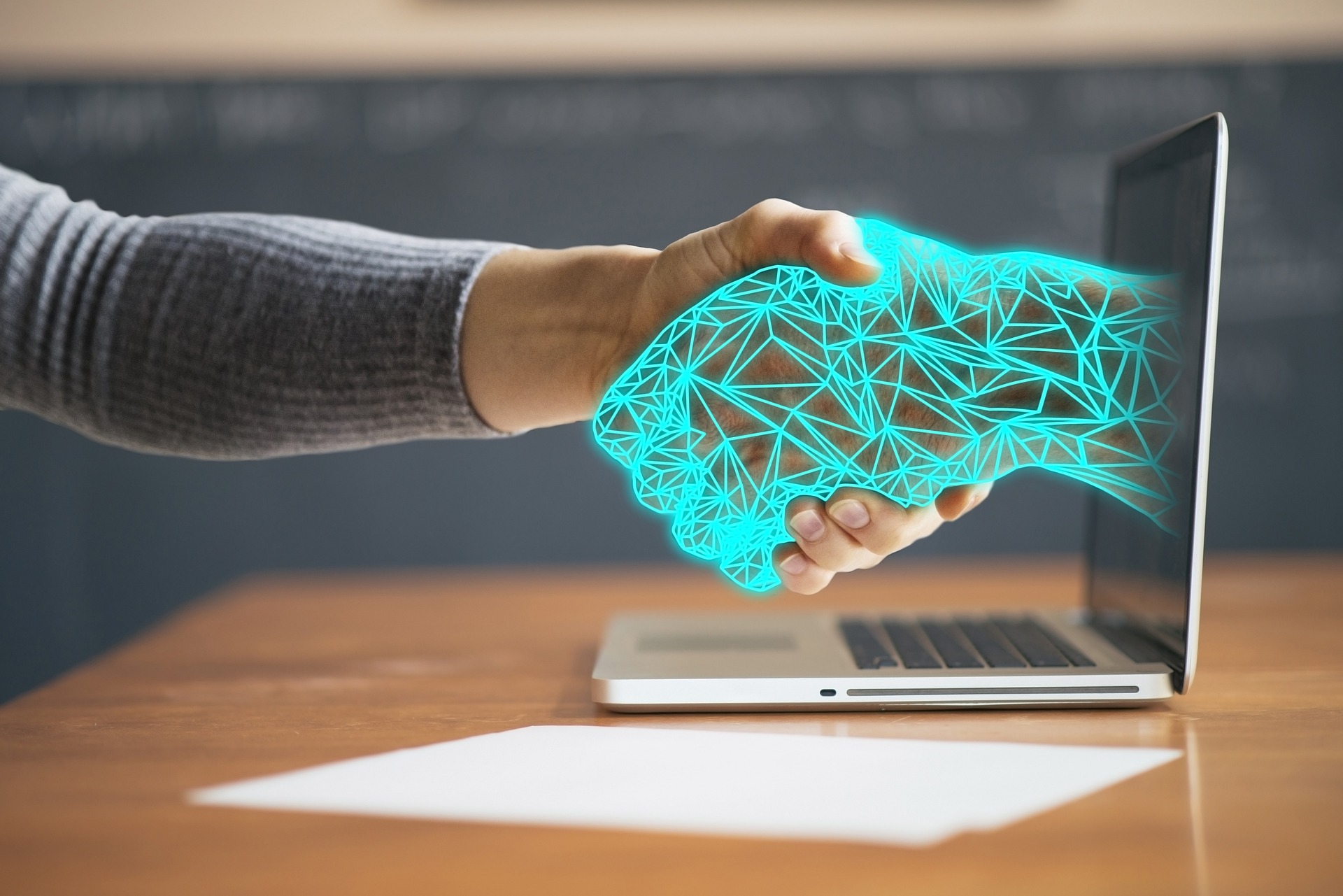

Our CEO, Andy Chandler, and Coaching Consultant, Sam Isaacson, spoke to Training Journal all about the rise of AI in the coaching industry, how the two can work in harmony and predictions for the future.
For several years now the demand for coaching within organisations has been rising, with increasing expectations for personalised employee development experiences. As a predominantly non-directive discipline, coaching is more personalised than most learning and development (L&D) offerings, but the ability to harness the power of high quality coaching from the ‘few’ to the ‘many’ is a challenge.
The 2023 ICF Global Coaching Study reported that 56 per cent of coaching clients are managers and executives. In reality, extending the reach of coaching is logistically challenging, time-intensive and requires organisations with deep pockets and confidence in the return such an investment will provide. At Barefoot Coaching, we remain committed to making the world a brighter place through exceptional coaching. So, naturally, we’re curious about how combining the power of artificial intelligence (AI) with human skill presents opportunities for scalable, high-impact solutions for the future.
The promise of AI coaching
Most people have now experienced what it’s like to interact with an AI model. Large language models (LLMs) like ChatGPT provide users with the ability to engage in conversations that are as close to human as we’ve ever seen. They feel like they’re magic. They have deep expertise in almost every subject, understand the clumsiest of instructions and are lightning fast. As a profession that operates almost exclusively through conversations, it should be no surprise that coaching is being seen as ripe for the use of AI.
The systems, of course, aren’t magic. They’re relatively limited prediction engines, but they’re advancing extremely quickly. AI is already presenting intriguing possibilities for augmenting coaching capabilities, and as it improves, the opportunity is going to grow. AI has the ability to make coaching consistent and predictable, affordable, available across multiple channels on demand, and personalised at previously impossible scales. AI coaches never need a break, can deliver coaching to multiple people simultaneously and never get distracted.
It would be easy to have a knee-jerk reaction to point out that AI can’t possibly deliver what a human coach can. Coaching is a nuanced craft, founded in unstated and often unconscious beliefs, catalysed by relationships built on trust. AI doesn’t offer that. But to rest one’s case on that argument is to miss the point. At scale, if an AI can be delivered at 1 per cent of the price, what proportion of what a human coach can deliver would make the AI a good investment? 80 per cent? 50 per cent? 5 per cent?
In truth, the choice is much less binary than that. When AI coaching becomes more prevalent, to what extent does human delivered coaching become complimented rather than limited by the presence of AI?
The source of the real magic
Our view is that AI coaches can never truly completely substitute the human experience. The personality, life experience and relational dynamics that underpin truly transformative coaching relies on the presence of a human together with the often invisible, systemic dynamics they come with. The emotional intelligence activated within a human is fundamentally different from even the best illusions that AI can generate. The psychological safety and trust cultivated through a human relationship has always been a significant catalyst for vulnerability, self-discovery and growth within coaching, and that’s not going to disappear just because a new technology product has appeared.
While AI can mimic conversational patterns, human coaches possess a unique capacity for navigating nuance by reading into and feeling what’s there and what isn’t there. Perhaps some experts would be able to codify and analyse the complexities of team dynamics, holistically developing individuals through a level of systemic awareness that an AI would need specialist training datasets to achieve. Or perhaps that’s simply something humans understand and machines don’t, because they’re not human. While ChatGPT appeared at first to be magical, any extended use of it reveals this to not be true. But the magic of humans has never been lost despite countless technological breakthroughs. The human touch proves indispensable in certain coaching settings, particularly with senior leaders and teams, navigating high-stakes situations, complex organisational change efforts and more advanced leadership mindsets.
The path forward
It seems like a safe bet to say that the future of coaching lies in a hybrid model that thoughtfully blends the advantages of both AI and humans. This could take the form of an overarching, purpose-led coaching strategy, where AI coaches provide on-demand performance-focused coaching and humans can be strategically deployed for higher-risk, higher-impact development needs.
Coaching programmes will need to mature, to interweave AI coaching with sessions led by humans. AI coach-based triage systems will be deployed, assessing coachee situations and assigning humans as appropriate. This sort of approach carries significant potential for creating more accessible, affordable and scalable coaching solutions that are simultaneously personalised and strategically aligned.
This is quite a change! Organisational leaders will need to introduce clearer governance frameworks than have previously existed around coaching, to maximise the benefits and minimise the risks, while shaping ethical considerations around transparency, data privacy, bias and others. A number of global coaching bodies, tasked with championing and upholding the highest professional standards across an unregulated profession, will also have their work cut out to keep up with the ever evolving AI landscape. We recognise that this isn’t easy, but it is absolutely necessary to ensure that technological progress doesn’t drive lower quality, ethically questionable, unsafe and less impactful experiences for those people who need the most help.
Not least, this sort of shift should act as a call to develop human coaches. At Barefoot Coaching, we’ve trained over 6,000 people to become accredited coaches and we plan to train many more into the future. We know that AI is here and here to stay, so rather than fight it, we’re looking at how we can best prepare the coaches of today for the coaching of tomorrow. By piloting intelligent hybrid models that harmonise human magic with AI-enabled scale, forward-thinking organisations are able to pioneer the evolution of coaching. The future belongs to those willing to thoughtfully blend the best of artificial and human intelligence.
Article originally posted on Training Journal read here.
"*" indicates required fields

Barefoot Coaching Ltd. Address: Unit 6E Boundary Court, Willow Farm Business Park, Castle Donington, Derbyshire, DE74 2NN
Registered in England and Wales No. 06932330. All content is the sole ownership of Barefoot Coaching Ltd. 2023.
Website by Saint Associates.
| Cookie | Duration | Description |
|---|---|---|
| cookielawinfo-checkbox-analytics | 11 months | This cookie is set by GDPR Cookie Consent plugin. The cookie is used to store the user consent for the cookies in the category "Analytics". |
| cookielawinfo-checkbox-functional | 11 months | The cookie is set by GDPR cookie consent to record the user consent for the cookies in the category "Functional". |
| cookielawinfo-checkbox-necessary | 11 months | This cookie is set by GDPR Cookie Consent plugin. The cookies is used to store the user consent for the cookies in the category "Necessary". |
| cookielawinfo-checkbox-others | 11 months | This cookie is set by GDPR Cookie Consent plugin. The cookie is used to store the user consent for the cookies in the category "Other. |
| cookielawinfo-checkbox-performance | 11 months | This cookie is set by GDPR Cookie Consent plugin. The cookie is used to store the user consent for the cookies in the category "Performance". |
| viewed_cookie_policy | 11 months | The cookie is set by the GDPR Cookie Consent plugin and is used to store whether or not user has consented to the use of cookies. It does not store any personal data. |